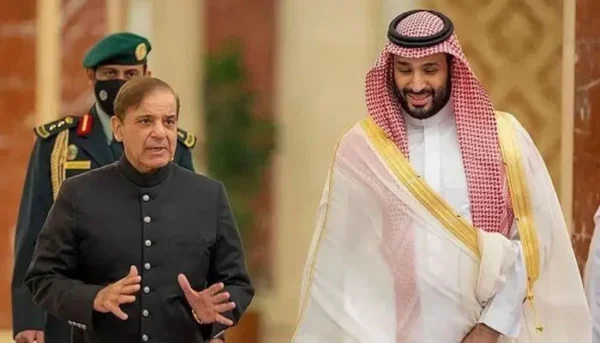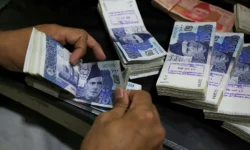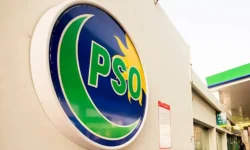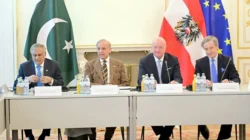Partner with Riyadh

Dr Farrukh Saleem
12 May 2024
Published in: The News
Ah, what a delight it is to live in the past. Saudi Arabia exports oil worth $240 billion a year. All we want from the Saudis is to give us a billion dollars worth of oil on credit. How charming it is to dwell in bygone days. Saudi Arabia’s Public Investment Fund (PIF) has estimated assets of $925 billion. All we want from the Saudis is to extend the term for the deposit of $3 billion with the State Bank of Pakistan (SBP).
We must gain a deeper understanding of the PIF’s investment selection criteria, funding priorities, the architects and the gatekeepers. The PIF has a vision and a strategy for Saudi Arabia’s future. The PIF aspires to transform the Saudi economy into an intelligent one, powered by two cutting-edge technologies: artificial intelligence (AI) and the internet of things (IoT). This shift aims to diversify the Saudi economy and invest locally and internationally.
Crown Prince Mohammed bin Salman leads the PIF’s Board. Andrew Liveris, a recipient of an honorary doctorate in science from the University of Queensland, serves as the crown prince’s special adviser on strategic matters. Liveris’ experience extends to advising two former US presidents. Kevin Foster is a member of the PIF’s Management Committee. Foster, a former managing director at the Royal Bank of Canada (RBC), head of RBC’s Capital Markets, Treasury Services, Private Bank and Wealth Management, holds three postgraduate degrees and an MBA. Jerry Todd is a member of the PIF’s Management Investment Committee. Todd has been an associate principal at McKinsey and holds an MBA from Cornell.
Any idea who the PIF’s head of internal audit is? Mike Cheng. He has been head of audit for Barclays, chief of internal audit at Prudential, and held various senior audit positions within Deutsche Bank. Cheng is a qualified chartered accountant, a recognized leader in the audit industry, and a co-founder of the Internal Audit Center of Excellence Workgroup with the Singapore Accountancy Commission.
Are we ready to partner with this group? Riyadh’s top-most priority is to create an ‘intelligent economy’ which means four things: digital infrastructure, renewable energy, innovation, collaboration and global partnerships. Lo and behold, copper is the secret weapon powering the intelligent economy. Digital infrastructure, renewable energy, electric vehicles, solar panels, wind turbines, geothermal energy, cryogenics, robotics, hydrogen production, 5G, quantum computing, drone technology, and biodegradable batteries – copper is the essential element woven throughout the intelligent economy. Saudi Ma’aden is the Gulf’s largest miner investing in mining assets globally. Are we ready to partner with Riyadh? Riyadh has invested in a state-owned, publicly-listed Egyptian General Petroleum Corporation (EGPC). Why not PSX-listed PSO, OGDC, MARI, PPL? Riyadh currently operates ten offshore drilling rigs in Egypt. Why not off the coast of Karachi? Riyadh has invested in the government-owned National Bank of Egypt. Why not the National Bank of Pakistan? Riyadh has invested upwards of $27 billion in Egypt across 2,900 projects.
Are we ready to partner with Riyadh? Riyadh is interested in establishing robust economic partnerships to deepen its impact beyond Saudi borders. Are we ready to separate economics from politics? Riyadh prioritizes partners with growth potential. Are we even strategizing to leverage our state-owned PSX-listed energy giants? Riyadh is focused on long-term impact and mutual economic growth. Are we even working on building our capacity to showcase our strong economic fundamentals? Two facts, four questions. Facts: The time for partnership with Riyadh is now. We have the potential. Questions. Do we have a strategy to leverage our strengths and present a compelling proposition to Riyadh? Are we actively showcasing Pakistan’s strong economic fundamentals? Have we taken any concrete steps to demonstrate our commitment to this partnership? Do we truly understand the potential consequences of inaction? That’s the $25 billion puzzle.





